|
Trinidad-born opera singer Jeanine De Bique will make her debut at the Paris Opera today.
DeBique, who is originally from San Fernando, will play the title role in Alcina, a 1735 opera by George Frideric Handel. In the opera, Alcina creates a magnificent palace to lure her many lovers. One of these is Ruggiero, a warrior, who under Alcina’s spell has forsaken his duty and his betrothed, Bradamante. Alcina by Handel will be staged by Robert Carsen production with musical direction by Thomas Hengelbrock and the Balthassar Neumann ensemble and will run from November 25 to December 30. In addition to her Paris debut, De Bique is also celebrating the release of her first album Mirrors. The album showcases the arias of female characters from Handel's operas as well as other Baroque composers. A graduate of St Joseph's Convent, Port-of-Spain, De Bique holds Undergraduate and Masters degrees from the Manhattan School of Music and has performed on major stages all over the world, appearing in the 2018/2019 season in Handel’s Rodelinda at Opéra de Lille, as Aida in the world premiere of Caruso a Cuba by Micha Hamel at Dutch National Opera, Mahler’s Symphony No 4, conducted by Teodor Currentzis, in Milan, St Petersburg, Munich and Budapest, and Handel’s Messiah with the Melbourne Symphony, among many others. (Source: the Loop, Nov. 25, 2021)
0 Comments
The Black Man, Dr. Leroy Calliste, five-time Calypso Monarch Black Stalin, celebrated his 80th Birthday on Friday, 24th September, Republic Day. Birthday blessings, health and happiness galore uncle Leroy, we love yuh baaaaaaaad!  Rudolph Charles - Born in 1938 in Laventille, Charles gravitated towards the Gay Desperadoes in 1958 and became the band’s leader three years after. He was known to carry his hammer around and was always ready to find the perfect note. He gave Desperadoes its characteristic tone which it’s known for even today. As an innovator, he was always willing to experiment to find ways of improving the Steelpan. He was the first to chrome pans which enhanced their tonal quality, durability and appearance. He also improved the canopies by using aluminum and designing them in a new shape. Collaborating with tuners Bertie Marshall and Lincoln Noel, the Rocket pan, Nine and Twelve bass pan, Quadrophonic pan and Triple Second Pan were created. He led the Desperadoes to 6 Panorama titles and 2 Music Festival titles. He was awarded the Chaconia Medal Silver posthumously in 2014. He passed away in 1985. Neville Jules - He began as a Tamboo Bamboo player before becoming a founding member of the Trinidad All Stars steel orchestra during the 1940s. He was captain, tuner and arranger for the All Stars and during the 1950s and 60s he initiated a rivalry where All Stars would play a classical piece to a calypso beat. Invaders led by Ellie Mannette followed and the selections of each band became known as “The Bomb”. Jules is credited with inventing the Tune Boom which later became the Bass pan, the Grundig which later became the Cello pan and the Cuatro pan which is known today as the guitar pan. He received the Humming Bird Medal Bronze in 1970 and Chaconia Medal Silver in 2018. He passed away in 2020. (Source: the Mannette Academy of Dance, August 19, 2021)  Ray Holman - Started playing pan at the age of 13 with the Invaders Steel Orchestra. Soon after, he was arranging for the band classics such as “Etude in Ab”. In 1963 he would go on to become a member of Starlift and started arranging for them shortly afterwards. By 1969, he won the Panorama competition with “The Bull” by Lord Kitchener and again in 1970 with “Queen of the Bands” sung by Sparrow. In 1972, he became the first steelband arranger to compose and play his own music for panorama; “Pan on the Move”. Since then Ray has gone on to arrange several of his own compositions for many bands. “Life’s too short” and “Special Brew” for Invaders and Tokyo respectively, along with “Pan Woman” by Exodus, “Steelband Paradise” by Humming Bird Pan Groove, “Panic” by Phase II, “Sapna” by Skiffle. In 2006, he reunited with Starlift and took them to 3rd place with another unforgettable composition “If We Really Want”. He has also arranged and recorded with steel bands and artists in the US, Canada, Japan and Europe. In 1988 he was awarded the Humming Bird Medal Silver. Clive Bradley - His interest in music started at high school where he taught himself to play the guitar. He later went on the learn the keyboard and play with several bands including the Clarence Curvan band. His introduction to steelband arranging came in 1968 with the Desperadoes Steel Orchestra. Two years later, he won his first Panorama with the band with his arrangement of Lord Kitchener’s “Margie”. He would go on to win 5 more titles with Desperadoes - “Pan in Harmony” “Hasley Crawford” “Rebecca” “In My House” and “Picture on my Wall”. Bradley also arranged for Pandemonium Steel Orchestra and in 1988 placed second with what is considered one of the most memorable steelband arrangements to date, “Sailing”. In 1998, he was also victorious with Nutones Steel Orchestra, arranging “High Mas”. Continuing in winners row, his arrangement of “Ordinary People” took Desperadoes to 1st place in 2005 in the Pan in the 21st Century competition. Throughout his career he arranged for the New York panorama and was victorious on 10 occasions, even winning with the same song he won with for Trinidad panorama in 1999; “In My House” was played by Pantonic Steel Orchestra. He passed away in 2005.(Source: the Mannette Academy of Music, Aug 14, 2021) Anthony Williams
Before forming the North Stars around 1949, Williams was a member of the Sun Valley Steel Orchestra. In 1951 he was chosen as a member of the Trinidad All Steel Percussion Orchestra (TASPO) to represent the country at the Festival of Britain. As a tuner, Williams developed a note placement scheme whereby each tone was surrounded by other harmonic tones (the “fourths and fifths” tenor Pan) which enhanced the sound. This “spider web” pattern not only improved the tonal quality but is the main reason for the tenor pan becoming a major teaching tool for music theory worldwide. Additionally, he was the first person to add wheels to bass drums in 1956. As an arranger and music director he led North Stars to victories in the Music Festival in 1962 with “Voices of Spring” and again in 1966 with “Poet and Peasant” as well as the first two Panoramas in 1963 and 1964 with “Dan is the Man” and “Mama Dis is Mas.” In 1968 he once again led North Stars in shows and concerts with celebrated pianist Winnifred Atwell with performances locally, as well as the Bahamas and New York. This collaboration went on to produce the widely acclaimed recording “Ivory and Steel” which was the first of its kind. Williams was awarded the Humming Bird Medal Bronze in 1969 and the Order of the Republic of Trinidad and Tobago in 2008. He received an Honorary Doctorate from the University of the West Indies in 2016 and recently received another Doctorate from the Northern Illinois University this year. Bertram “Bertie” Marshall Bertie Marshall is responsible for several innovations and tuning advancements in the Steelpan world. By 1956 he revolutionized the tuning of steelpans by adding octaves and harmonics which gave pans a “brighter” sound. From Success Village, Laventille, he led the Metronomes Steel Orchestra and then the Armed Forces Steel Orchestra which became the legendary Laventille Highlanders. As an arranger, he produced several bomb classics such as “Let Every Valley be Exalted”, “Gypsy Rondo” and “May the Good Lord Bless and Keep You”. He introduced the use of canopies to protect pans from the sun as well as inaugurated amplified pans during the 1965 carnival. Bertie created the Double Tenor pan and in 1970 he became the resident tuner for the Desperadoes Steel Orchestra. He collaborated with the band’s leader Rudolph Charles on the chariot pan, quadraphonic and 12 bass pan. He was awarded the Chaconia Medal Gold in 1992 and the Order of the Republic of Trinidad and Tobago in 2008. He passed away in 2012 (Source: the Mannette Academy of Music, August 12, 2021)  Junior Pouchet - The Silver Stars steel orchestra was formed in the 1950s and in 1954 Junior started to arrange for them. By 1956 he was captain and arranger for the band. He went on to arrange many memorable “Bomb” tunes such as “Elizabethan Serenade” (1964), “Wonderful Land” (1966) and “The Theme from Dr. Zhivago” (1967). In 1970 he led Silver Stars to 3rd place in the National Panorama competition with his arrangement of “Simple Calypso” sung by Blakie. He went on to become one of the greatest ambassadors for the Steelpan as he led his band, Adventureland Steelband, which was made up of Silver Stars members, to perform at Epcot Center in Disney World from 1971 to 1999. He passed away in 2012. Edwin Pouchet - In 1973, Edwin joined his older brother at Disney World, he became so versatile that in 1982, upon his return to Trinidad, he arranged for the Invaders Steel Orchestra. In 1983, he went to arrange for the Adventureland Steelband at Tokyo Disneyland. Fast forward to 2002 and Edwin arranges “Love Theme” for Silver Stars in the Pan in the 21st Century competition and is victorious. He goes on the win again in 2007 with the “Phantom of the Opera”. His Panorama success started in 2004 when Silver Stars won the medium band category playing “Pure Party”. He went on to take Silver Stars to back to back victories in the large band category in 2009 and 2010 with “First in de Line” and “Battle Zone”. Edwin also arranged for Katzenjammers Steel Orchestra in the medium band category and took them to victory in 2011 and 2012 with his compositions “Wake up” and “This is Bachannal” respectively. He passed away in 2014. (Source: The Mannette Academy of Music Aug 7, 2021)  and, courtesy of the Manette Academy of Music, today is the first of our 4 part series on the history of the Steelpan. Today we highlight the Mannette brothers! The Mannette brothers - Elliott “Ellie” Mannette and Vernon “Birdie” Mannette! Birdie was one of the founding members of the Oval Boys which went on to become the Invaders Steel Orchestra. He was a master tuner and “one of the chief architects in carrying Invaders to the “Everest” of the steelband world in the period 1948 to 1954”** Birdie took over the reigns of leadership of Invaders when Ellie left Trinidad in 1967. He developed and maintained the sweet sound of the band which made an indelible impression on everyone’s consciousness. With his cellos sounding like harps, Birdie created the distinctness for which Invaders became known for over the years. Besides being a tuner extraordinaire, he was also a composer and in fact is the first panman to compose a song for a steelband, named “Birdie’s Mambo”. Besides Invaders, Birdie worked with several steel bands locally, regionally and internationally. He was recognized for his work in 1992 with the Hummingbird Medal Silver. He passed away in 1999. Ellie Mannette’s contribution to the steelband world is unmatched. After leading the Invaders for some years he left Trinidad and continued to push the Steelpan in the US and globally. He was responsible for much of what is accepted today as the modern Steelpan. He was first to use a 55-gallon oil drum, and first to sink the top of the drum into a concave shape. Other innovations credited to Ellie include the Double Seconds, Double Guitar, Triple Cellos, Tenor Basses and the Quaduet. He was also the first to wrap playing sticks with rubber which produced a more refined sound. He was awarded the Hummingbird Medal Silver in 1969 and the Chaconia Medal Silver in 2000. He was also awarded an Honorary Doctorate from the University of the West Indies in 2000. He passed away in 2018. (Source: The Manette Academy of Dance, Aug 5, 2021) ** The Evening News (Newspaper) March 1959 Winsford Devine aka Joker has passed on... This man was no joke... He penned masterpieces such as Progress performed by King Austin and In Time To Come by Crazy and a number of hits by the Calypso King Of The World Sparrow...His span reached from from his home in Trinidad and Tobago all the way to St. Kitts and Nevisand over to Grenada ...For me this man is the Calypso song writing GOAT...Not only did he pen tunes he also sang them... One of my favorites is Love Up...Rest well Dr Devine...I interacted with him via social media of the last two years because I simply have so much respect for his talent...He is Caribbean Gold... |
T&T news blogThe intent of this blog is to bring some news from home and other fun items. If you enjoy what you read, please leave us a comment.. Archives
July 2025
Categories
All
|

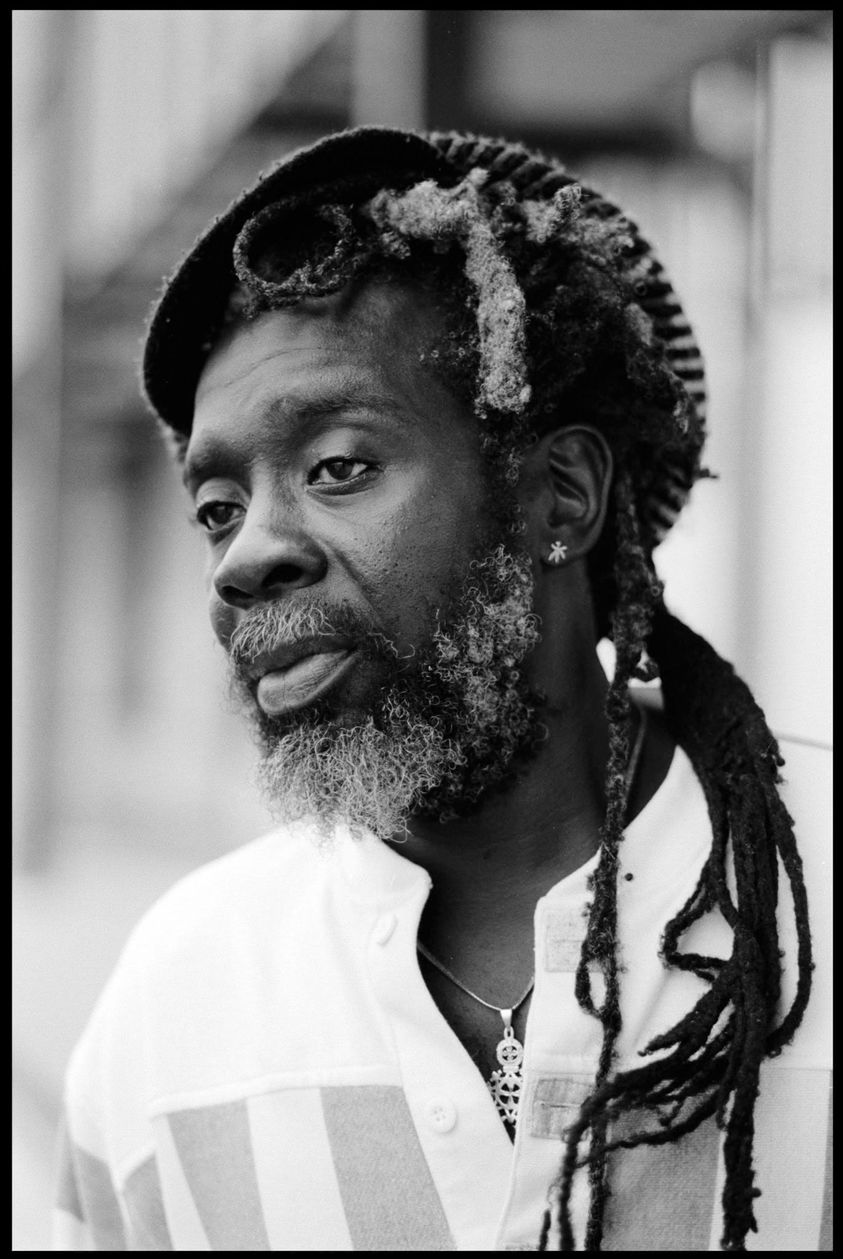
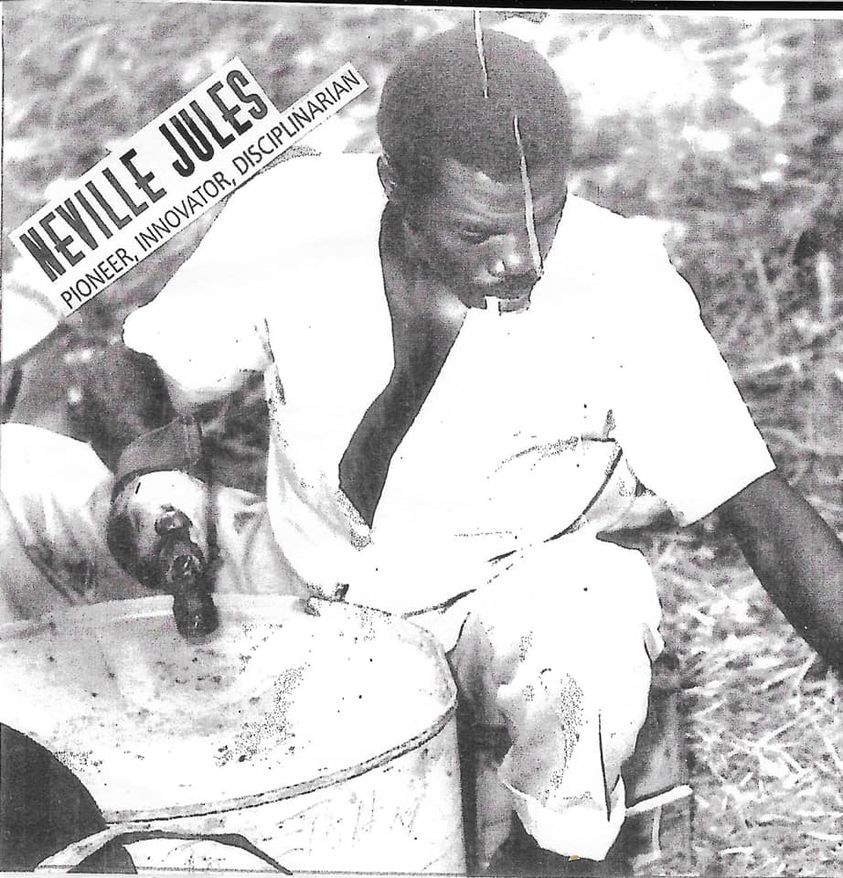
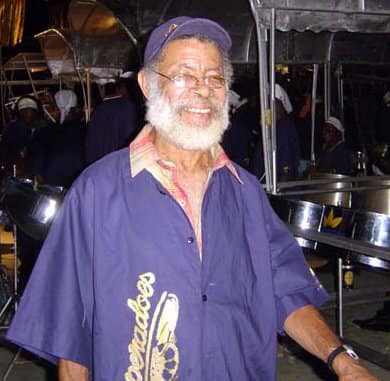
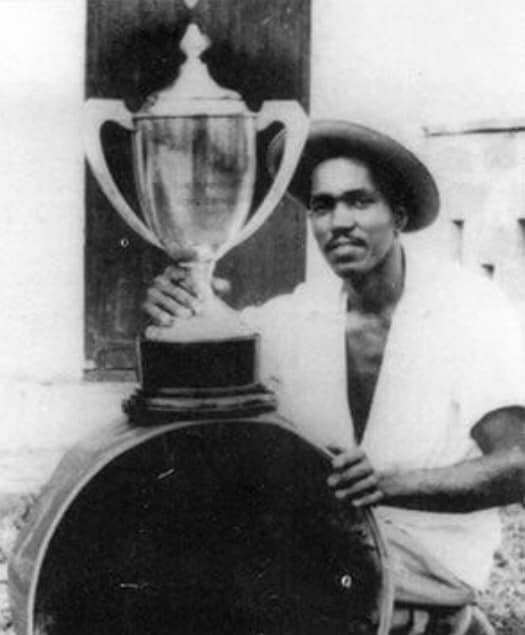

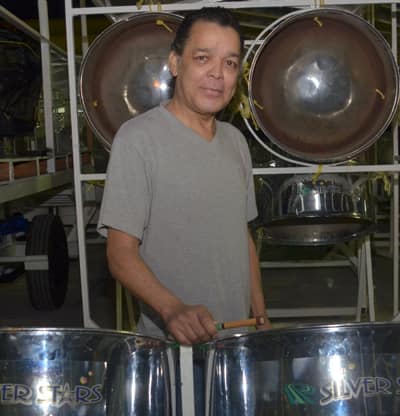

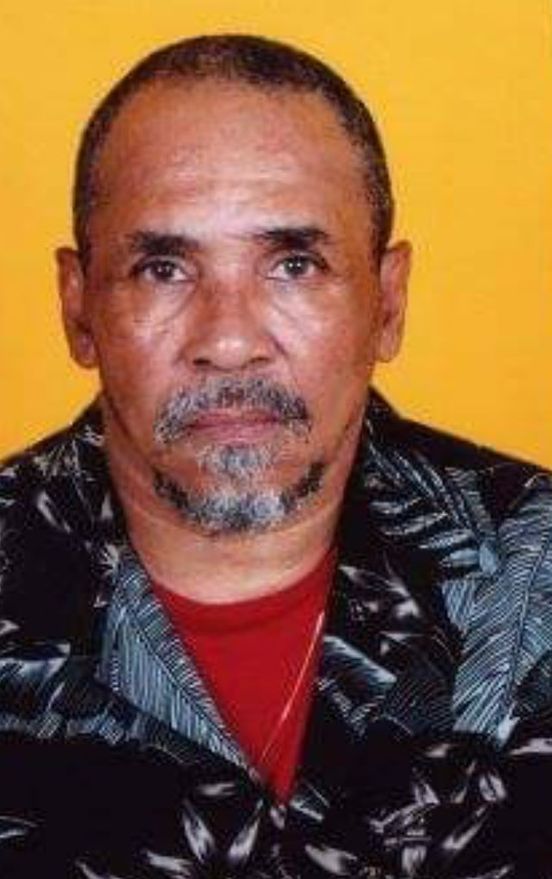

 RSS Feed
RSS Feed